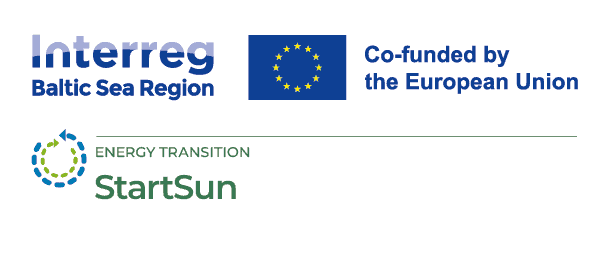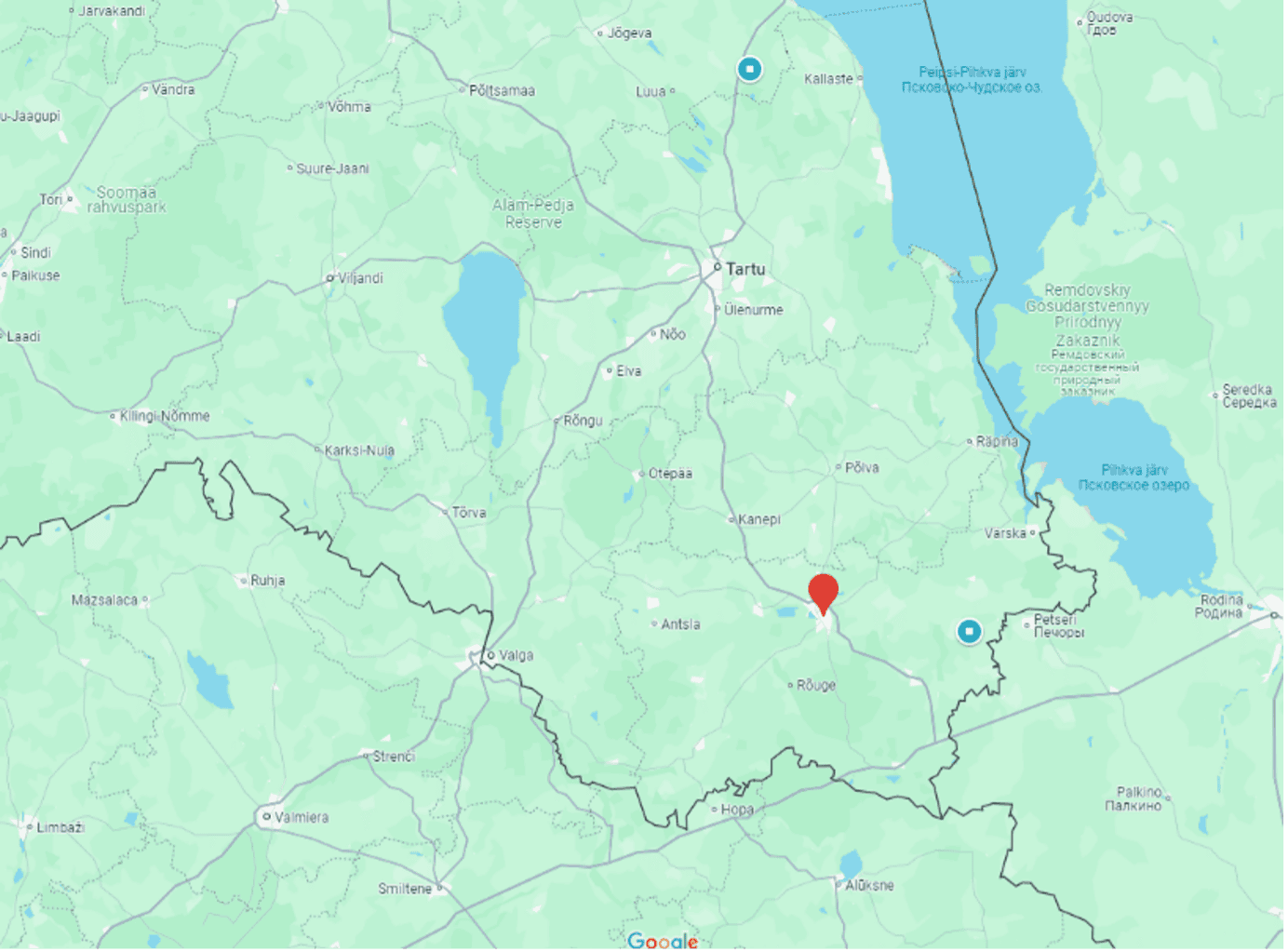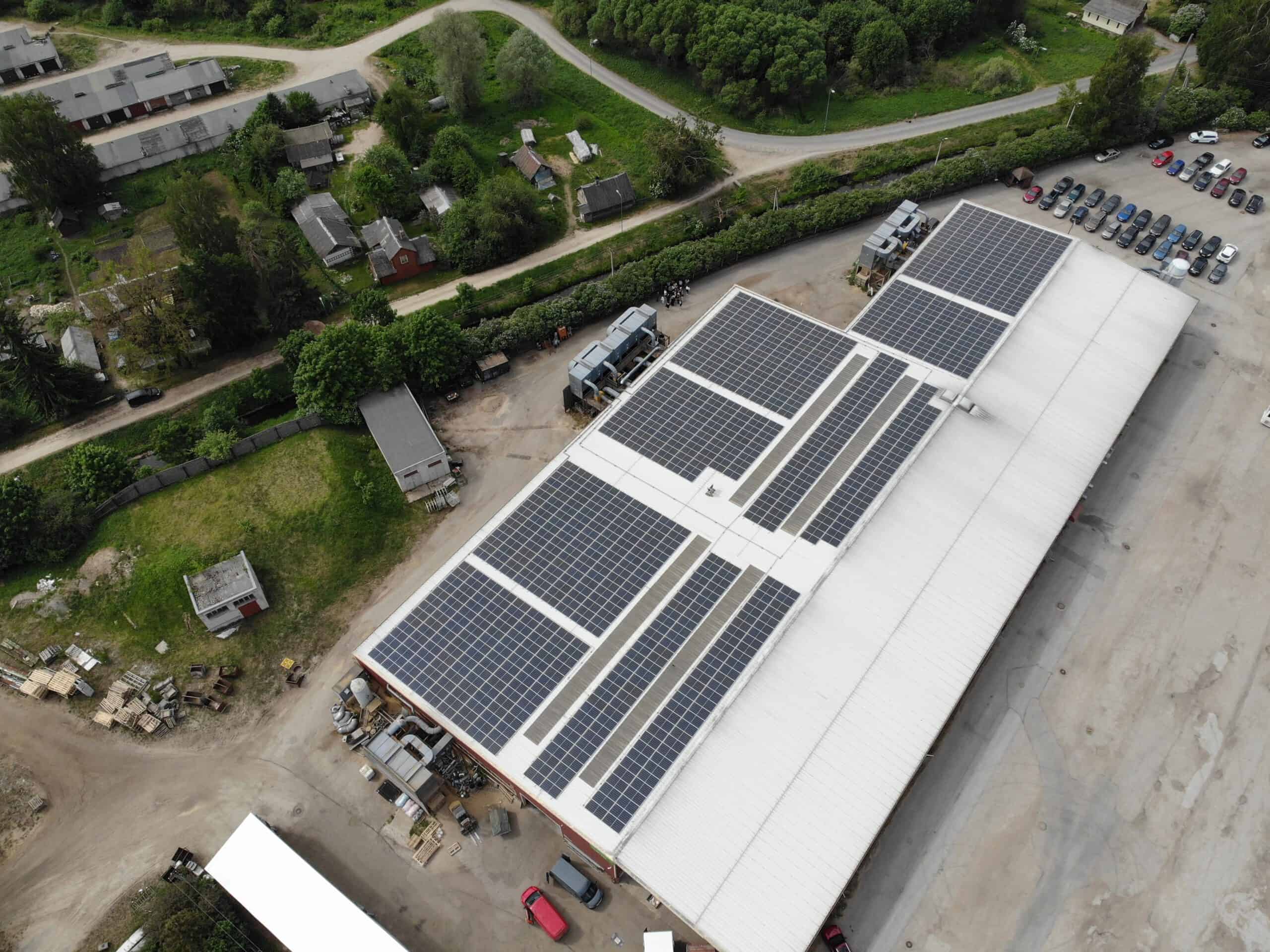
Case Study #2: Wermo AS (Estonia)
04 October 2024
Author: Tartu Regional Energy Agency
Keywords: SME, cooperative, rooftop solar
Overview
This EC was founded in 2022 in Võru. It was established by the owners of the Wermo furniture factory, who decided to install the solar park on the roof of the Wermo AS production building to cover the factory’s electricity consumption, and invited factory employees to participate and invest in the solar park. Wermo furniture factory is one of the largest producers of premium-class living room furniture in the Baltic States, which means that the self-consumption of electricity is extremely high and the existence of a local solar park is very practical both economically and from the point of view of sustainability.
EC was established as a separate legal body. The members of the EC are the employees of Wermo furniture factory (Wermo AS). This is a great example of good cooperation between employer and employees which (in addition to the cooperating experience itself) leads to environmentally sustainable actions and mutual benefits. To our knowledge, no other employer has offered employees the opportunity to be a member of an EC under such conditions. Wermo AS guarantees EC members at least 10% productivity from the investment made. Additionally, the creation of the EC has led to a decrease in labor mobility. This is what makes the example of Wermo AS unique.
Legal form
The legal status of this EC is a private company (OÜ), as it has been from the beginning.
Currently, according to law, all legal forms described in the Estonian Commercial law are allowed for energy communities. It depends on the EC’s nature, activities, goals, etc. The most common are for-profit organizations, limited companies, nonprofit organizations, etc.
Technical setup
Wermo AS EC has installed 450 kW solar panels on the roof of the production building.
This PV system is connected to one consumer only – Wermo furniture factory (Wermo AS). Surplus electricity not consumed by Wermo AS is redirected to the grid. This usually happens during weekends, when the factory is not working.
Wermo AS is constantly making efforts towards greater energy efficiency in the production process. Starting from changing interior lights to more energy-friendly versions, etc.
The main stakeholder is responsible for technical maintenance. EC members do not contribute to the repair fund or something like that.
Technical and judicial skills were brought in during the establishment of the EC. Fortunately, the use of solar energy has been practiced in Estonia for many years and it was not difficult to find a specialist in this field.
There are two ideas for future development of Wermo’s solar park
- Install the solar panels also to the north side of the roof. PV park is installed only on the south side. They would be connected to the grid only when the solar efficiency is low. In this way, the fork would not be burdened and one could increase the share of locally produced electricity.
- Connect the battery with the system. Currently, battery prices are still too high for local production and consumption, but the hope is there, once batteries develop to become more affordable. Of course, it also depends on the price of electricity.
Governance
The leader of the EC is the Main Shareholder (also the owner of Wermo AS), with the others as Shareholders. Once a year, the previous year is reviewed and plans for the new year are established. The Main Shareholder is responsible for finance and technology. Shareholders have an equal vote, regardless of the initial investment or size of the share. So far, there has been no need to change it.
There are no agreements between members. Regardless of the price of electricity, EC pays members a return rate of at least 10%. This is possible due to no taxes or tariffs in case of self-produced electricity consumption.
The managing director is the majority shareholder. The EC is open for Wermo AS employees only. A written application is sufficient to leave EC. All payments will be refunded (not even considering the depreciation of the solar park equipment), and there is no minimal time limit to leave EC.
A meeting in Wermo AS was organized where the employees were informed about the possibility of joining the newly created EC. Later, a meeting was held for specific interested parties. The officials we met during the project were very knowledgeable and helpful. This made the project quite easy to implement.
Business model
Compared to the average energy community, the feasibility of the project is quite high. It is mainly due to the high local consumption of produced energy and the relatively limited number of EC members, which allows for quick payback of the investment. The total cost of the solar park was 250 000 euro. On average, the park produces 400 MWh per year.
The only consumer in this system is the Wermo AS furniture production plant. No grid tariffs between EC and Wermo furniture factory. When selling electricity to the grid, the exchange price is paid for it. There are no grid charges. The grid tariff is applied when purchasing electricity from the grid.
The solar park was built with its own funds and a bank loan. Public support has not been used. EC expenses are covered by the main shareholder/owner of the cooperative. The income is divided among the members according to the size of the share. The smallest possible part is 1% of the investment volume of the solar park. There is no other agreement.
Digital tools
The solar park on the roof is connected to a connection point. Most of the electricity is consumed by the same production building. Electricity left over from furniture production is fed into the public grid, recorded by the DSO’s smart meter.
The production data of the local fleet is obtained from the inverters. This data is always available to all EC members. The stock exchange price is used for settlement.
All info about solar park, the amount of electricity produced and other information about EC is available to EC members and Wermo AS employees. The size of the members’ holdings is not public information, as is the size of the dividends paid.
The level of data privacy is relatively advanced and secure.
Sources
Desk research, a site visit in May 2024, and an interview with Wermo’s managing director in July 2024.







